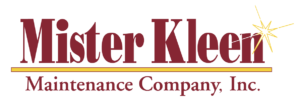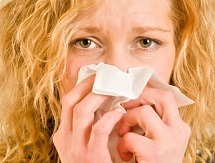According to the Asthma and Allergy Foundation (AAFA), an estimated 50 million Americans suffer from all types of allergies, the 5th leading chronic disease in the U.S.
While seasonal allergies in the spring are common, what many people fail to realize is that outdoor and indoor allergy triggers occur during the summer season as well. The most common summer allergy culprits include:
- Pollen
- Air Pollution
- Insect Bites
For companies this can spell trouble as allergies result in billions of dollars in lost productivity each year!
How Companies Respond to Indoor Allergy Threats
Many companies realize that it is much cheaper to invest in the prevention of allergy threats than to risk a decline in workplace performance that impacts their bottom-line.
An example of an out of the box thinker is St. Joseph Health System in Sonoma County, California. St. Joseph Health System partnered with ImmuneTech, Inc., to provide a simple and innovative allergy diagnostic test to employers using a finger stick. Testing, along with recommended treatment can result in fewer sick days and a boost to employee efficiency.
Many companies today are also taking proactive steps to invest in a comprehensive cleaning program to remove dirt, debris and dust mites for a cleaner and healthier environment.
ISSA, the worldwide cleaning association, provides an excellent video discussing many health benefits companies can expect with a cleaner facility. According to their research, the average employee is sick 7.7 days per year costing companies $225.8 billion. With a cleaner facility employee absenteeism drops by 46% and a typical office can save $125,000 each year.
Tips to Prevent Indoor Allergens from Impacting Workplace Performance
Improve indoor air quality with dust prevention
Poor indoor air quality is a large environmental threat in the U.S. According to the Environmental Protection Agency (EPA), “…Biological pollutants including molds, bacteria, viruses, pollen, dust mites, and animal dander promote poor indoor air quality and may be a major cause of days lost from work and school.”
Unfortunately, there can be a substantial amount of hazardous biological pollutants inside of the dust, dirt and grime buildups in facilities, which can lead to many poor health symptoms such as:
- Headaches
- Fatigue
- Trouble concentrating
- Irritation of the eyes, nose, throat and lungs
- Asthma or breathing issues
Ultimately, preventing dust buildup is critical in maintaining proper air ventilation and improving indoor air quality. Dust removal needs to be done in both easy and hard to reach areas. Such areas to remove dust include:
- Ceilings
- Air ducts
- Air Vents
- Lighting fixtures
- Fans
- Chairs
- Baseboards
- Blinds
Extract harmful pollutants from carpets, upholstery and (grouted) floors
Carpets, floors and upholstery can trap and hold countless amounts of pollutants deep within their fibers and pores. Foot traffic can release these pollutants into the air, which then becomes damaging to indoor air quality and for people who suffer from allergies and asthma conditions.
One of the most effective methods to remove pollutants and improve indoor air quality is to have your carpets, upholstery and grout cleaned on a regular basis (in addition to removing the dust).
A common misconception is that vacuuming your carpets and upholstery, and mopping floors on a regular basis will remove pollutants. While such methods are recommended for general appearance and upkeep, such processes do little to extract these pollutants.
Ultimately, it is recommended that you have a preventative maintenance program in place to deep clean your carpets, upholstery and floors on a regular basis. Having a preventative maintenance program in place will assist in keeping a healthy indoor environment while improving the appearance and prolonging the life of your carpets, upholstery and floors.
Pay attention to mold
Allergic reactions to mold are common. Some of the allergic responses include, but are not limited to:
- Hay-fever symptoms such as sneezing, runny nose, red eyes, and skin rash (dermatitis)
- Asthma attacks
- Irritation of the eyes, skin, nose, throat, and lungs
According to a recent HealingWell.com article:
“The mold season often peaks from July to late summer. Unlike pollens, molds may persist after the first killing frost. Some can grow at subfreezing temperatures, but most become dormant. Snow cover lowers the outdoor mold count dramatically but does not kill molds. After the spring thaw, molds thrive on the vegetation that has been killed by the winter cold.
In the warmest areas of the United States, however, molds thrive all year and can cause year-round (perennial) allergic problems. In addition, molds growing indoors can cause perennial allergic rhinitis even in the coldest climates.”
While it is impossible to remove all molds and mold spores indoors, it is possible to prevent and control its spread with moisture control. Anytime there is a leak or intrusion of water, it is highly recommended to use a professional company and/or equipment to extract water from affected areas, treat with an antimicrobial agent and dry quickly with the use of air movement and dehumidifiers.
The EPA provides an excellent resource guide on tips to clean up mold, what to wear, and how to prevent future moisture and mold buildup.
Though not all allergies stem from the workplace, it is important that companies continue to be proactive in preventing indoor allergies from becoming an environmental issue. Ultimately, prevention is the key to thwart allergens from impacting workplace performance.
Mister Kleen is a leading provider of contract cleaning services to Commercial and High Security facilities since 1976. Our primary service area is the DC Metro region. We also provide a variety of interior and exterior specialty services.
Tags: Allergies impact on workplace performance, and floors, dust cleaning, dust removal, How to prevent indoor allergens from impacting workplace performance, improve indoor air quality with dust prevention, Indoor allergens, ISSA, mold removal, pay attention to mold, remove harmful pollutants from carpets, St. Joseph Health System, Summer allergies, upholstery
Categories: Blog






